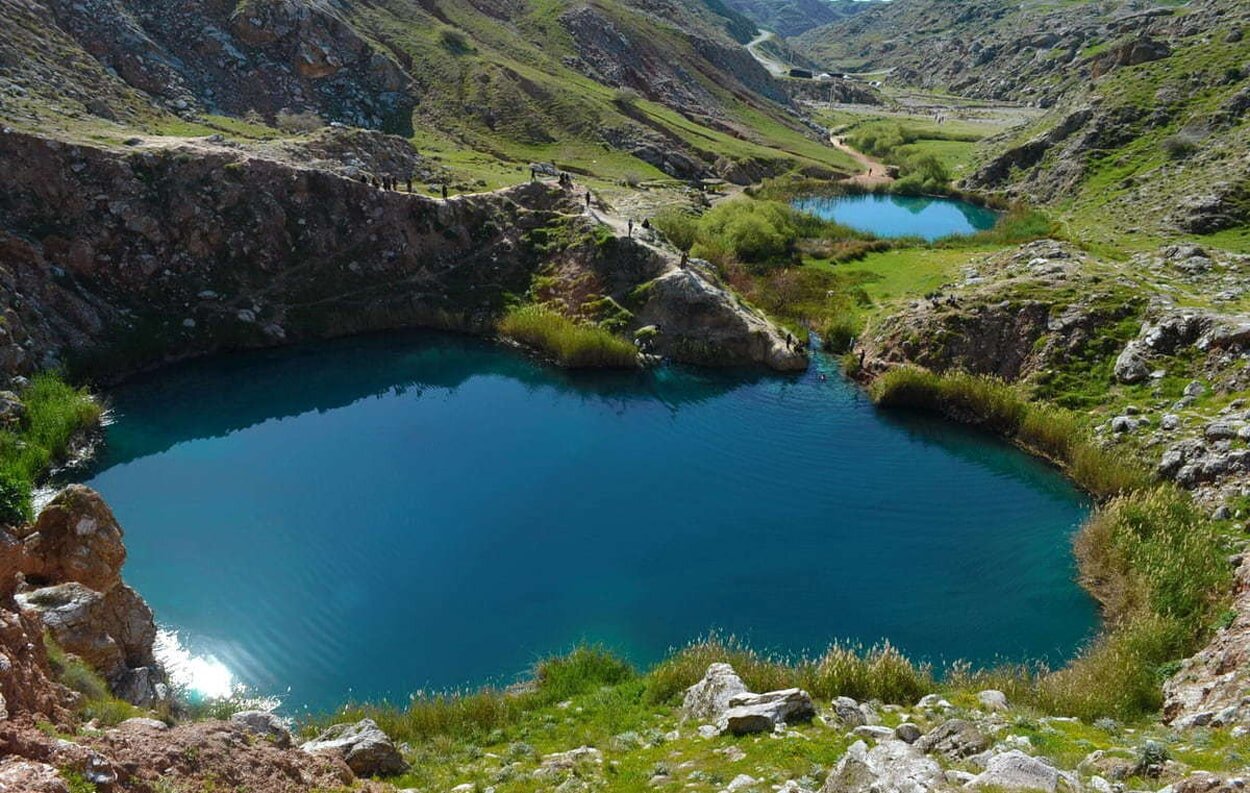Explore twin lakes in western Iran

TEHRAN – In the heart of Iran's picturesque Ilam province lies a hidden gem for nature lovers, the twin lakes of Siyah Gav in the city of Abdanan.
This natural wonder, situated 35 kilometers northeast of Abdanan, western Iran, captivates visitors with its breathtaking scenery and unique features.
Bounded by rocky hillsides, the lake has become an attractive tourist attraction with bird music and the symphony of the wind breeze. As can be found out from its name, the lake consists of two parts. The water of the first lake flows into the other as a result of the difference between their levels. The water of the second lake then exits it and flows as a river and feeds the agricultural fields of Abdanan.
The two lakes are linked by a canal, which is eight meters wide and four meters deep, formed with a length of seventy meters.
The water of this lake is so clear that one can easily see the fish swimming around in it. The water of the Siyah Gav Lake is a vital resource for many villages, and life in the countryside depends on the existence of the water in this river.
Fed by pristine natural springs, the lakes have cool and clear waters during the summer, offering a refreshing escape, while the winter months bring a gentle warmth.
To reach Lake Siyah Gav, travelers can start their journey in Abdanan, passing through Anfal Forest Park and Hazarani. A walking path leads to the lakes, providing a scenic approach to the destination.
Ilam is located on the foothills of the Zagros Mountains in the western region of Iran. Unlike The north and northwest parts of this province, which are mountainous, the west and southwest are flat. It is a suitable place for nomad life since the geographical conditions are favorable for summer and winter relocation.
The common handicrafts of this province include carpet, rug, drugget, felt, and coarse blanket weaving. The majority of the people in Ilam are Kurds, Laks, and Lurs. They speak in Laki, Kurdish, and Luri. Based on the archeological excavations, the civilization of this province dates back to the New Stone Age circa 8000 BC.
The land which is called Ilam now was a part of the ancient Elamite civilization that was formed circa 3000 BC and was destroyed by Assyrian King Ashurbanipal in 640 BC.
Elam was an ancient pre-Iranian civilization centered in the far west and southwest of what is now modern-day Iran, stretching from the lowlands of what is now Khuzestan and Ilam provinces as well as a small part of southern Iraq.
